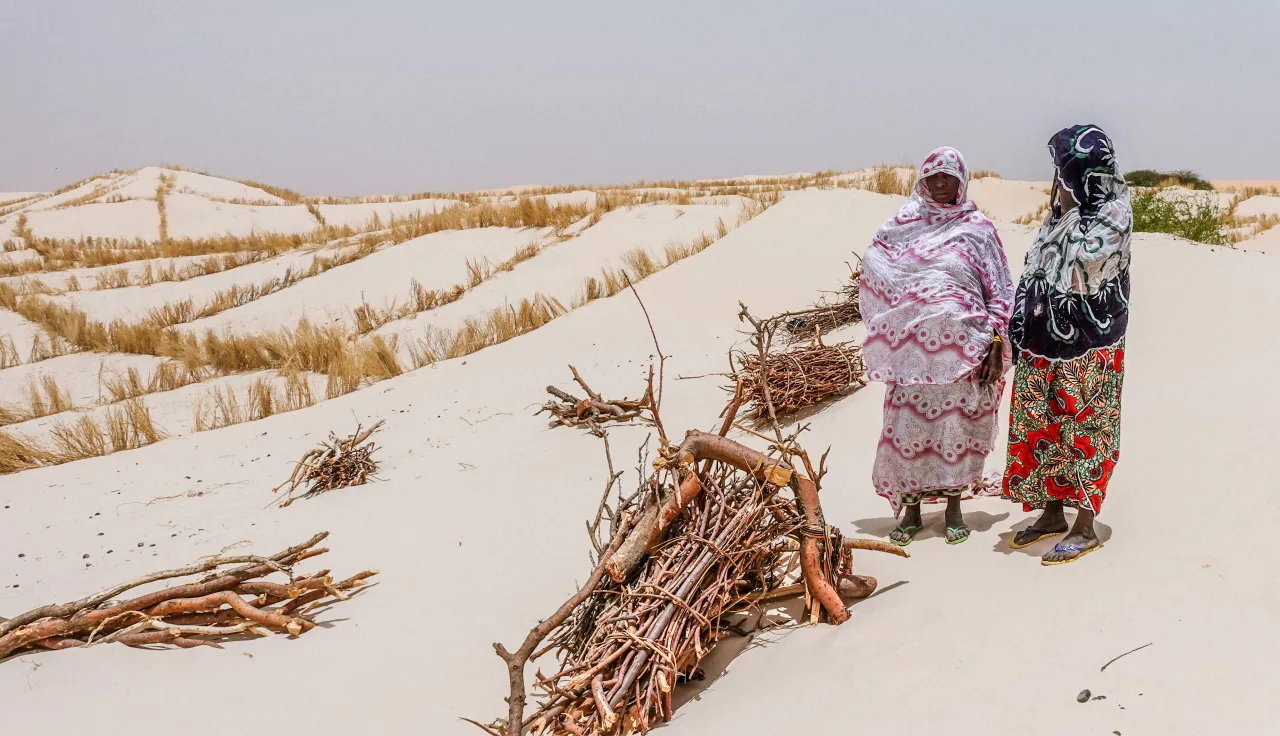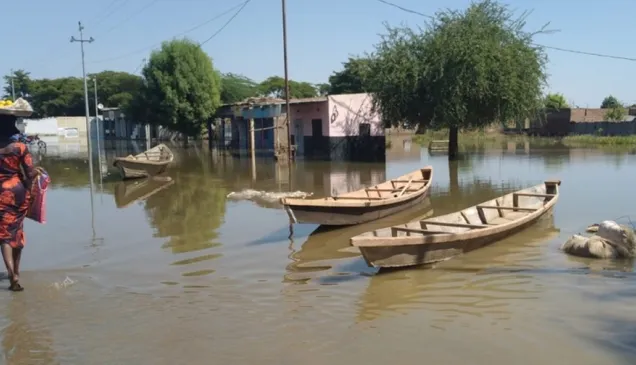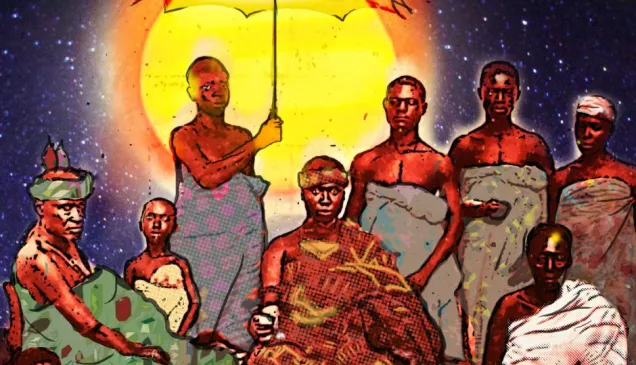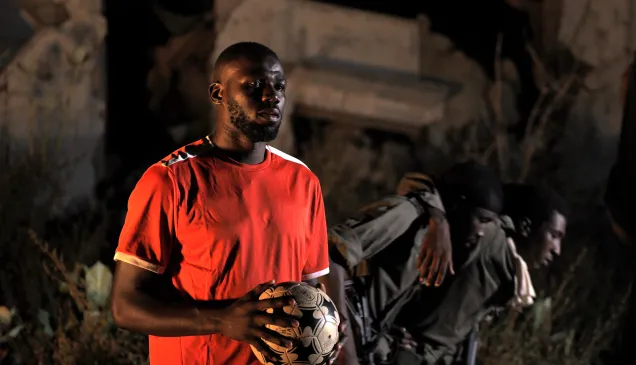The following comments were made by Peter Maurer, president of the International Committee of the Red Cross, as part of a panel discussion on challenges to stability and emergence in Africa in a post-COVID-19 world, at the Dakar International Forum on Peace and Security, 2021.
Dakar Forum on Peace and Security: “There can be no security without human security”

Speaking at the Dakar International Forum on Peace and Security, Peter Maurer, the president of the International Committee of the Red Cross (ICRC), stressed that there can be no stability or emergence in Africa if action focused solely on military solutions; it was essential to invest in the human dimension.
Let me begin by thanking His Excellency, President Macky Sall, for inviting me to the Dakar International Forum on Peace and Security. It is a great pleasure to return to this space of rich exchange and debate, which has become an unmissable international event.
In 2014, I had the privilege of taking part in the closing session of the first edition of the Dakar Forum. Today, I have the honour of sharing with you the views of the International Committee of the Red Cross and contributing some food for thought, to enliven debate.
Major health crises occurred in both 2014 and in 2021. Indeed, there are some striking parallels between the Ebola outbreak in 2014 and the COVID-19 pandemic. While the humanitarian impact and geographic scope of the current pandemic differs from that of the Ebola crisis, both major health emergencies have highlighted the common qualities required to tackle crises: resilience, tenacity and innovation.
In Africa, the response to COVID-19 has been anchored in effective regional collaboration and joint efforts to prepare for future health crises. In this regard, I would like to draw particular attention to the work of the Africa Centres for Disease Control and Prevention and the Partnership for African Vaccine Manufacturing which will enable, from 2022, messenger RNA vaccines to be produced in Senegal and Rwanda. I would also like to acknowledge the remarkable work of the Pasteur Institute in Dakar, which has provided training to laboratories in 25 countries, thus enabling the rollout of testing capacities throughout the region.
These efforts need to look to the long term, as the COVID-19 pandemic is not yet over. The emergence of new variants, most recently Omicron, requires us to remain vigilant.
To date, only 7.2 per cent of the African population has been fully vaccinated against COVID-19. Equitable access to vaccines has yet to become reality for millions of people, especially the most vulnerable living in situations of crisis, armed conflict and violence, who are not yet covered by vaccination campaigns.
Once again, we call on leaders to deliver the promised vaccine doses in a concerted and timely manner, so that recipient countries can make effective use of them. We deplore the fact that vaccine doses have gone to waste because they were made available too late and too close to their expiration date, according to the findings of the African Vaccine Acquisition Trust, the African Centres for Disease Control and Prevention, and the COVID-19 Vaccines Global Access initiative, in November 2021.
The response to COVID-19 should also provide an opportunity to invest more broadly in health systems, move away from focusing exclusively on the pandemic and provide a more meaningful response to people's multiple health needs.
We must also remember that responses to health challenges cannot be purely technical or technocratic in nature. In order to implement health-related activities in situations of political divisions and armed conflict, we need to recognize the importance of:
- building trust with local communities
- reaching communities in territories controlled by armed groups that limit people's access to services
- engaging community and religious leaders, civil society groups and other stakeholders in overcoming vaccine hesitancy and resistance to certain treatments.
Although the pandemic is a global problem, an effective solution must be tailored to specific socio-political and cultural contexts. That is why our response to the pandemic is just one aspect of our operational activities in Africa.
In 2021, the ICRC ran operations in 35 different countries. Five of our ten largest operations were in South Sudan, Nigeria, the Democratic Republic of the Congo, Somalia and Libya. In 2022, the ICRC's operational work in Africa will account 43 per cent of our field budget, namely 890 million Swiss francs or more than 500 billion CFA francs. These figures reflect our ongoing desire and commitment to remain as close as possible to communities, to understand their situation and to respond as best we can to their needs.
This year, during my trips to the Central African Republic, Ethiopia and Mozambique, I have seen just how serious a challenge COVID-19 poses for communities already exposed to the impact of armed conflict and climate change.
Facing multiple crises at once, these people have ended up in dire humanitarian straits: their access to basic services such as water, food and health care has been seriously compromised; their livelihoods have either been destroyed or severely eroded; and those who had earned a living in the informal sector prior to the pandemic have seen their incomes either dwindle or disappear altogether.
Conflicts are becoming increasingly protracted, the situation is deteriorating in the Sahel and Lake Chad regions, as well as in the Horn of Africa and in Southern Africa, and new front lines are emerging. Complex alliances involving state, multinational, civilian and military entities are giving rise to a growing number of armed groups that support parties to the conflict. Whenever these alliances hamper attempts to find political solutions, contribute to prolonging conflicts or lead to a lack of clarity about who is responsible for protecting the civilian population, the level of human suffering increases.
Today, there are 24 million internally displaced people in Africa. In July 2021, in resolution 486 on missing migrants and refugees in Africa and the impact on their families, the African Commission on Human and Peoples' Rights expressed concern about the situation and stressed the urgent need to help missing persons and their families. The 48,000 cases in Africa documented by the ICRC are only the tip of the iceberg.
In addition to internally displaced people, groups at serious risk include people reported missing and their families, survivors of sexual violence and persons deprived of their liberty.
We estimate that 26 million people in Africa currently live in areas of armed conflict, which are extremely difficult for humanitarian organizations to access. It is also important to stress the negative impact of counter-terrorism measures and sanctions that can prevent affected communities from obtaining the help and protection they need. Humanitarian space is shrinking.
We are working tirelessly with weapon bearers, including regular armed forces and non-state groups, to remind them of their primary responsibility to protect the civilian population. More than ever, there is a need for concerted action by all parties to conflicts, as well as allied states, to ensure respect for international humanitarian law and to protect humanitarian space by allowing and facilitating access for impartial, neutral and independent humanitarian organizations and guaranteeing humanitarian exemptions to counter-terrorism measures and sanctions.
If humanitarian organizations cannot reach people in need and if those people cannot access health services, it will be difficult to for efforts to tackle pandemics, and to ensure a broader response to health needs, to succeed.
I would like to take this opportunity to highlight a major achievement: the establishment by the African Union of the African Humanitarian Agency, and to stress the importance of actively supporting its effective operationalization. However, no humanitarian organization can operate in isolation. The sheer magnitude of people's needs requires the involvement and active cooperation of governments, the private sector and the development sector to make a real difference to people's lives in the long term.
This week, I am scheduled to travel to Niger. In the Sahel region, the ICRC has been working to respond to growing humanitarian needs while helping to build resilience among people affected by situations of conflict and violence.
We have partnered with the African Development Bank on a project to strengthen the capacity of vulnerable women in the Sahel. In 2020, 400 women in Niger, Mali and Chad were able to grow their income-generating activities. In Nigeria, our partnership with the Tony Elumelu Foundation has enabled us, since 2018, to promote the commercial activities of approximately one hundred entrepreneurs per year in the northern part of the country and in the Niger Delta region. These initiatives offer people sustainable solutions that uphold their dignity and help to break the cycle of dependence on humanitarian aid.
We have also sought to provide solutions to broader, underlying problems, moving beyond an emergency humanitarian response.
In Mali, the ICRC is focusing on renewable energy by installing boreholes, wells and solar-powered pumps. In urban areas, including in the city of Gao, we are working on a master plan to ensure a sustainable water supply to handle the increased demographic pressure on resources caused by the rural exodus.
We are also working together with the development sector in fragile settings. In South Sudan, between 2019 and 2021, our partnership with the World Bank provided support to 19 primary-health-care facilities and one hospital, and enabled 670,000 people to access basic health care.
Moreover, we have developed innovative financing methods to increase the resources allocated for humanitarian aid. In the first quarter of 2022, we will implement a project funded by private sector entities and development agencies in west Goma, in the Democratic Republic of the Congo, to provide access to water to over 330,000 people. This ambitious project will involve repairing the infrastructure and establishing a sustainable and viable water management model.
Today, as the world is beginning to open up again and we are able to exchange views at the Dakar Forum, I would like to thank the heads of state who continue to view the ICRC as a privileged partner on whom they can rely to develop responses to humanitarian challenges.
The key themes of the Dakar Forum are emergence and stability. However, these themes need to have a more tangible meaning for people. Peace and security cannot be achieved by focusing on military solutions alone. We need to invest in the human dimension, to place people's needs at the heart of all political decisions and collective efforts. There can be no security without human security.



